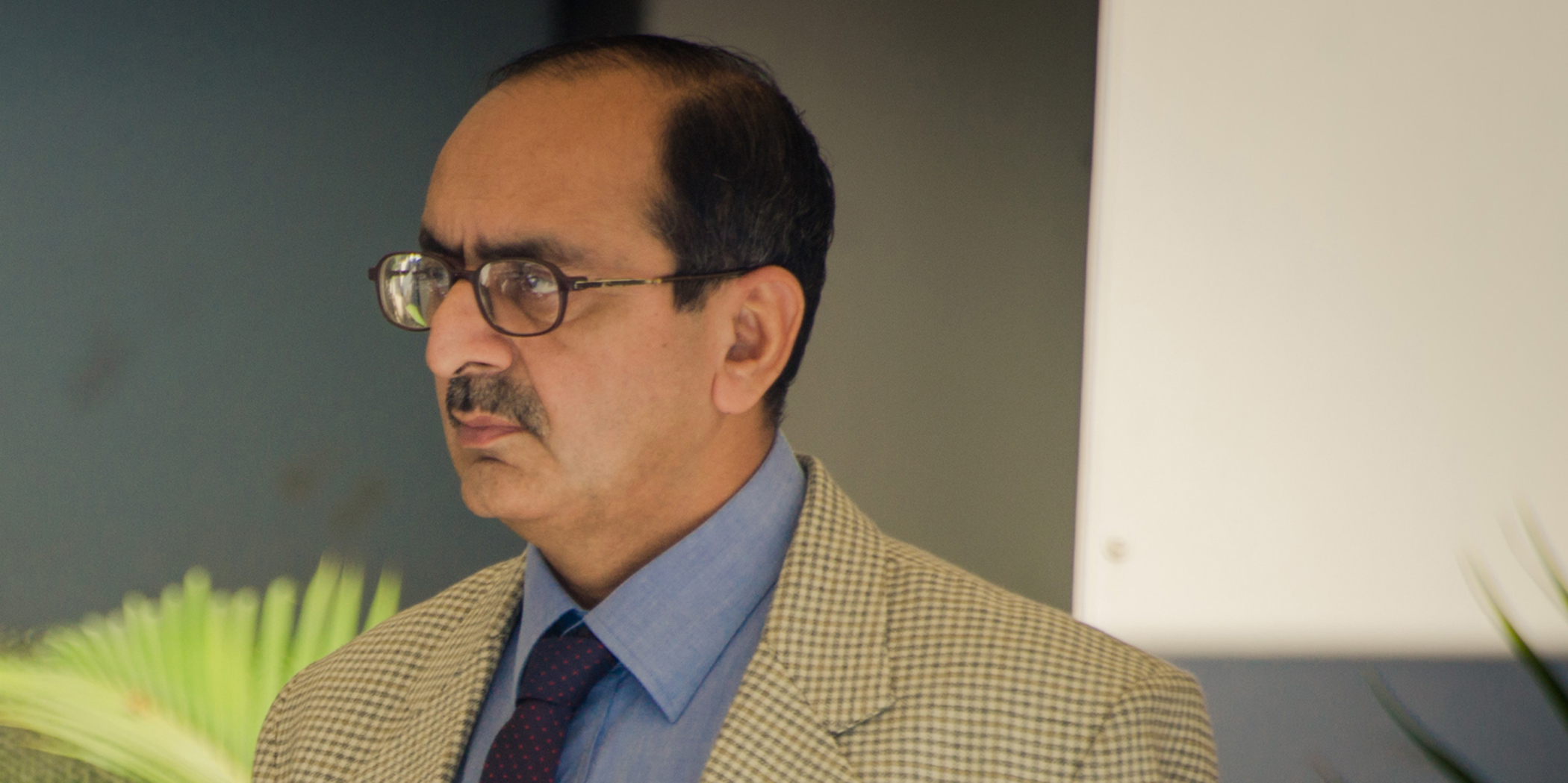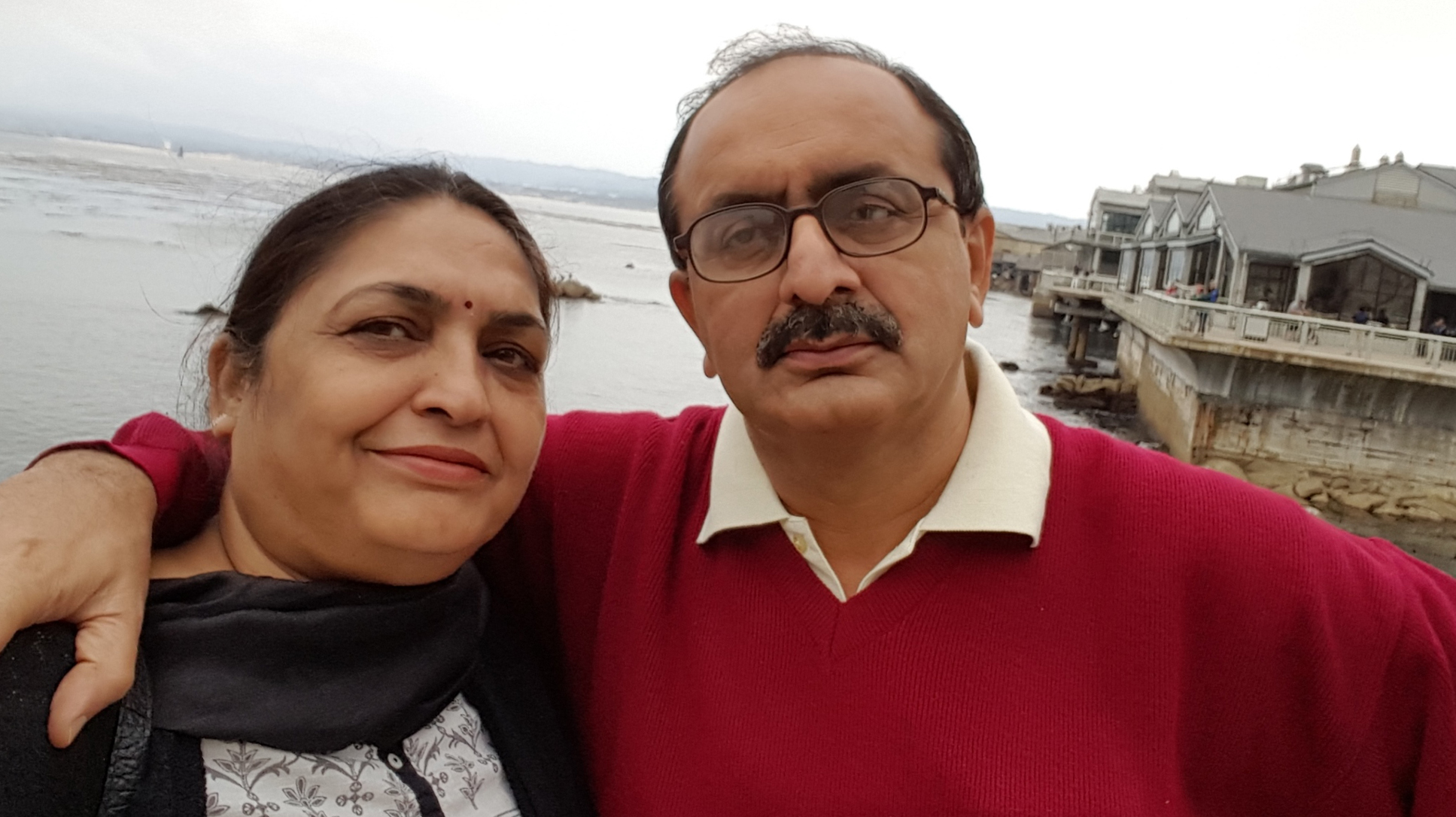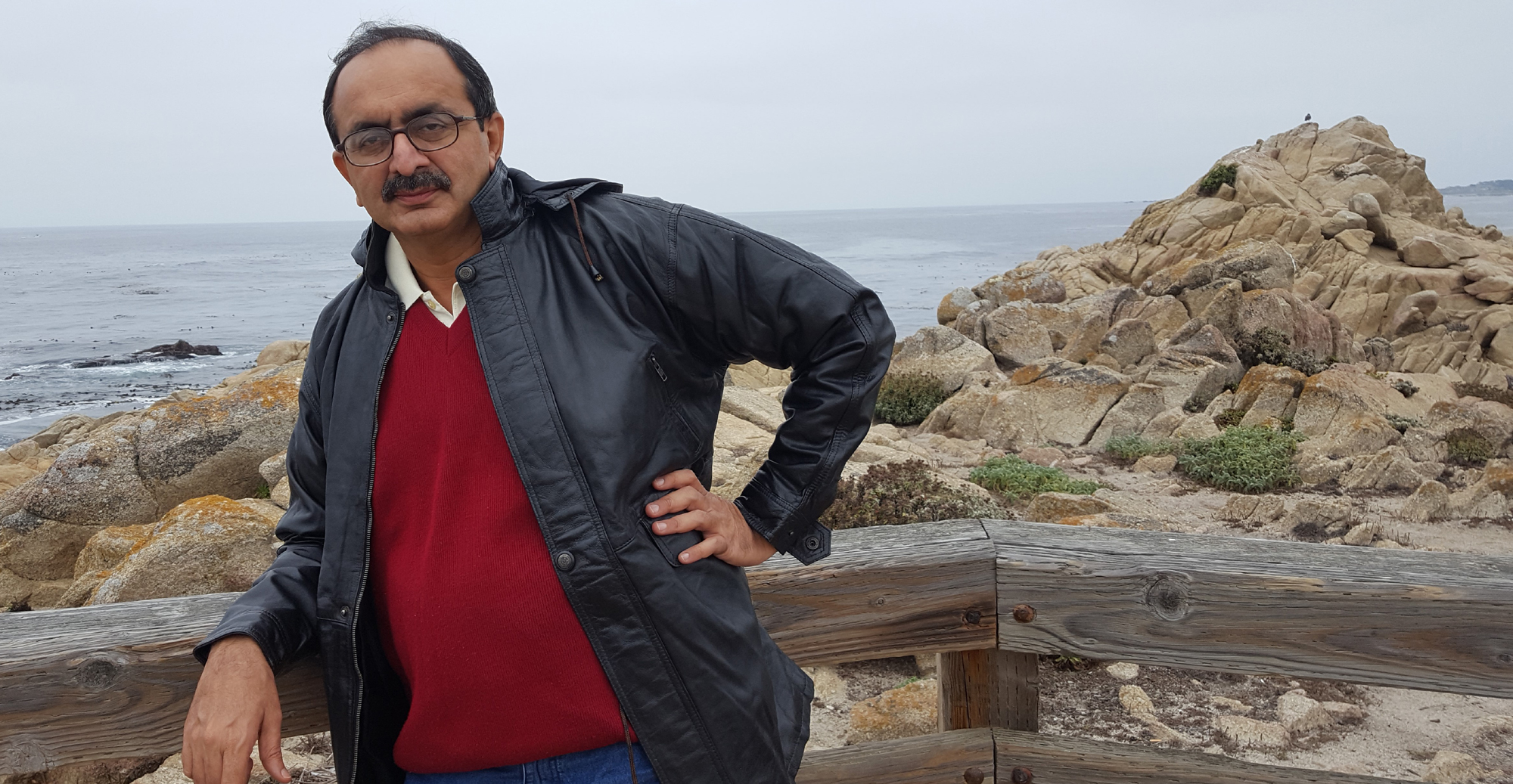Four Do's and One Don't for My Fellow Oldies
No one likes being called an oldie. The times that we live through, place a premium on youth. Becoming old seems like being afflicted with a malignant disease. One's own children have developed identities and personalities of their own that one can often not relate to. Suddenly, the awareness sets in that one is walking towards sunset. All this can be depressing. The desire to be young again raises its head but harsh realities either of health or of circumstances all around convince one of futility of the desire.
There are innumerable books and articles about facing old age - save money, do yoga, take care of health, eat properly, etc. Surely, all of you are well aware of such common-sense advices that are available a dime a dozen. Unlike the large volume of advisories for the senior citizen, let me just give four do's and one don't for my fellow oldies. These do's and don't are based on the philosophical framework of Hindu thought which believes that the whole cosmos is one unit and each one of us is a part of the cosmos.
FIRST DO - CONTRIBUTE
In a tree, every branch has a purpose which helps sustain the whole tree. In case a branch stops doing what it is supposed to do, the tree converts the branch into dead wood and makes sure that the useless branch is thrown out of the tree. By and large, the same holds true of the cosmos. Being useful for the cosmos is almost an essential condition for remaining in the cosmos.
At some point in life, one is afflicted by the desire to relax and enjoy life. I use the word, "afflicted" because this desire is a malaise that must be fought as soon as it raises its ugly head. One must always try to do work that is useful for one’s family, one's friends, one's society, the world at large and even the stranger whom one happens to meet.
Across the world women live about three to five years more than men. This statistically significant difference in life expectancy cannot be explained by modern medicine. It can only be explained by the fact that in advanced age, women start contributing to family as grandmothers while men become useless devoting their time to reading newspapers, seeing television and generally enjoying themselves. Nature does not tolerate uselessness and acts to eliminate the ones who play no role in the schema of things.
So, if you want to live longer and better, the key is not regular yoga (which can surely contribute to well-being to some degree). The key is to contribute in some way or the other to the lives of people around you. One may take to teaching one's own grandchildren or may collect children from the neighborhood and help them. One may help one's friend run his business. If on a day you cannot find any work, it may be worthwhile to go and sweep the temple compound. The point is that one must do something that has a positive impact and do it every day without fail.
Working for money is a habit that almost all of us developed during our youth. Yes, money is a parameter to measure the value of one’s contribution. And of course, one needs money to sustain oneself. But, as one becomes old two distinct phenomenon happen – (a) the need for money decreases firstly because there are accumulated savings and secondly because one’s needs also reduce (b) it becomes difficult to find work that pays one in relation to one's assessment of one's worth because there are younger people in the market competing for the same work. Reducing need for money combined with difficulty of finding paying work forces most oldies to stop working. This is dangerous. To get out of it, one must break the relationship in one's mind between work and money.
One must realign one's mental framework as one moves to old age. One should stop focusing on one's own needs of money since the same have already been largely taken care of. One should define the purpose of one's existence in the world in terms of the contribution that one can make to the life of others. One should learn to be happy when one can make a difference in the life of someone else. This someone else may be from one’s family or may be a friend or may be a relative or may be a total stranger. Each human being is a manifestation of the cosmic being and an opportunity to serve the cosmic being should be seen as something to celebrate.
As one focuses on contributing to the lives of others, one may receive money, respect, honor, rewards etc. But all these are incidentals and must not be allowed to dominate one’s thought process. Searching for opportunities to contribute and working to contribute to the maximum should become one's enduring passion and focus. Just one caution - one should never knowingly help an ungrateful person. Of course, in most cases one does not know whether a person is going to be grateful or ungrateful and hence, one must aim to help without letting the thought come in one's mind.
Some may interpret the advice to contribute as giving away of one's money to some worthwhile cause. While giving money may be desirable, working to contribute in people's lives goes beyond giving money. It is important to understand that one's money is only notionally one's. The day one dies, one's money will surely pass to someone else. If all that you can contribute is money, the cosmos can very easily get rid of you and pass on the money to someone else. So, do not be conceitful of your money and do not think that you are doing the cosmos a favor by giving away money. All the money undoubtedly belongs to the cosmos and each one of us happens to be only a temporary custodian, nothing more.
SECOND DO - KEEP LEARNING
When decades back, we joined school or college we did so because everyone around us was doing it or because it was the surest way of getting a job later. As the hair turns gray and visits to dentist become frequent, the need to learn seems unnecessary. Pursuing passion for a subject seems such a waste of time, effort and money. A school or college was a pathway to a certificate or diploma or degree which was gate-opener for employment. Now with no need for employment, why should one pursue learning?
In the section above I talked about remaining useful. The advice about learning is a continuation of making efforts to aim to contribute. At an advanced age, one must keep learning to constantly enhance one’s capabilities to contribute.
I have an uncle who retired as head of India's top power engineering company. After retirement he was living with his daughter in USA to help her take care of her kids. He told me once that learning to take care of kids was a big challenge. I asked him, what did he find most difficult? He said, changing diapers in a moving bus was the most difficult task he ever undertook. Yes, this was coming from a man who once shaped power plants. The point is that no task is too small and it is never too late to learn a new skill.
The skills and knowledge that we learn three or four or five decades ago made us useful for the past so many decades. Probably, the same skills and knowledge will no longer enable us to contribute to the people, the society and the world. If we do not reinvent ourselves by constantly learning, we run the risk of becoming dead wood. In the past we learnt to become more employable. Let the focus remain almost the same with a small change. Our quest for knowledge should now be to become more useful and not employable.
Embracing change is an essential part of life. When one is young, one enjoys change and even celebrates it. As one grows old, one tends to resist change. Let us first and foremost learn to embrace change and also learn to be a part of change. Someone may even call it moving with the times.
I often see some old friends have late night parties in an attempt to act as if they have not aged and are as young as they were in their twenties. The attempt is generally either ludicrous or disastrous. One does not become young by drinking till early hours or by dancing to loud music. Moreover, it is futile and ridiculous to act as if one is forty years younger. Better to accept that one's physical abilities have dwindled with age. Having accepted that, one needs to rekindle in oneself the quality that one had when one was young - ability to acquire new skills and knowledge. If one does that, in the eyes of the cosmos one remains young even though one cannot drink six pegs or dance through the night.
THIRD DO - REACT ONLY TO CONTRIBUTE
Temptation to put the other person down and win an argument is often irresistible for many. In the western or Greek model of thought, there is white and there is black; there is truth and there are lies; defeating the adversary in an argument is a sign of the wise. Hindus have always adopted a different approach. One discusses to understand and to explain without any pressure to either convince the other person or to get convinced. One must always be humble enough to concede the possibility that one may be wrong at least partly.
If one accepts the Hindu approach, one reacts only if one feels that by reacting one will contribute to either the persons involved or to the knowledge in general. Of course, one may also react if one is duty bound to react. For example, if I see someone whom I love go on the wrong path, I am duty-bound to try to stop him. Again this is also a way of contributing to the loved one's life. One does not react either in anger or to show off one's superiority. One reacts only out of love for the persons concerned. One reacts because not reacting will cause damage.
It sounds simple but is indeed very difficult. My teacher taught me this almost four decades ago. I have yet to learn it perfectly. Nevertheless, I hope that my fellow oldies are more mature than me and will adopt it to make their life more peaceful and joyful.
FOURTH DO - TOLERATE AND ACCEPT
The easiest thing in the world is to pass a judgment on anyone and everyone. As one grows older, one's ideas about right and wrong are set in stone. Any deviation is often seen as either crime or unpardonable folly or signs of mental derangement. Youngsters, on the other hand, are often extremely tolerant. As one grows old, if there is one quality that one must try to retain or get back from the youth it is the ability to tolerate and accept divergent views, different life-styles, different food habits and such other differences.
One's son or daughter may have an entirely different approach to life. He or she may make life choices that one just does not approve of. Yet, one must continue to love her and to try to contribute to his / her life in a positive way.
One's junior at work may make mistakes that are plainly idiotic. Yes, one must correct him or her. But that is no reason to frown upon him / her as a person. One must continue to support and mentor him / her as one would do to one's own son / daughter.
This fourth do is about love which does not impose conditions. Every generation has a right to make its own mistakes and learn from them. We, oldies, will see the young ones make mistakes. We shall feel frustrated that they could have easily gained from the wisdom that we have gained over the years. But we must bury the frustration in our own hearts and love them. We must tolerate and accept them out of love.
I can hear my friends asking, why should we do it? We must do it because we need love. When we love without conditions, we get back love. At a younger age, one can get love as a package with sex from one's spouse. Bundling of love and sex does not happen when one is old. As one grows old, one becomes lonely and friendless. The only thing that can save one from loneliness is love. So, when one tolerates and accepts one's colleagues or one's children or someone else, one is doing so because love is more precious than everything else and will make one's life really livable.
ONE DO NOT - DO NOT GET INTO A SHELL
If you have read the above four do's well, agree with them and follow them, there is no need for you to read any further. Nevertheless, let me warn you of a danger that all the old persons are prone to.
It is very easy to withdraw into a shell where one's life only revolves into oneself or at the most one’s immediate family. One's routine of morning yoga, long walk, breakfast and so on becomes so rigid that there is no space for any other person to even peep in. One draws up one’s elaborate plans of listening to music, travel, reading, learning dancing, elaborate hobbies and such other things that one always dreamed of doing when one was working. The net result is a big shell where one is all alone with no space for anyone else. In such a case one lives one's life for oneself and no one else. The justification is that having spent decades bothering about others, it is time to focus on oneself and live life as one always wanted to.
The justification is based on an individualistic way of life that is not acceptable from a Hindu view of life which treats the cosmos as one unit and each individual as part of the cosmos. Theoretical objections aside, I have seen the persons who withdraw into shell age very fast and get afflicted by physical as well as mental diseases. It appears to me that the cosmos acts to eliminate such persons who stop being useful to the cosmos.
If you are a firm believer of the individualistic way of life, I do not wish to argue with you or oppose you. For all others, my simple advice is - Do not withdraw into a shell.
Hope my friends in their advanced age will follow the four do's and one don't given above. Of course, one does not need to be in fifties or sixties or seventies to follow the above advice. Someone much younger may also gain from following the four do's and one don't.


